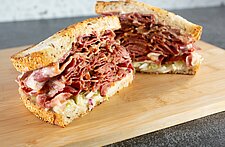At a recent White House state dinner, the President and First Lady of the United States hobnobbed with an select crowd of culinary movers and shakers. Eager to share their vision for the future of American food, these chefs and food producers, dined on recipes they provided, prepared by the elite chefs of the White House kitchens.
And they were all under twelve years old.
Winners of First Lady Michelle Obama’s “Healthy Lunchtime Challenge” winning youngsters from around the country represented their states with healthy recipes they had created for the noon-time meal. The dishes were served at a luncheon attended by both Mrs. Obama and the President himself.
You might think these kids are prodigies—culinary wunderkinds whose interest in cuisine is far different from that of their peers.
And you’d be wrong.
These kids are simply one example of a generation of kids who have grown up in a world where food and cooking is the social currency in which we all trade. They have never known a world without Food TV. And they’ve always been part of a conversation in which now, as never before, Americans want to talk about what they are eating—and what they are cooking.
This post-Millennial generation, called Gen Z, is widely agreed to be people under the age of eighteen and they are growing up during a time when social media and food media has fueled the American obsession with what we eat.
So far, it’s been ten-year trend that has had some predictable results: the rise of the celebrity chef, the growth of the cookbook market, and the proliferation of eateries from food-trucks to white tablecloth dining and new and unique food companies.
CLICK HERE to stay updated on kids food trends!
The less predictable result has been the creation of this new generation that understands themselves—like their adult counterparts—to be part of the food discussion. And that includes everything from healthy eating to food sourcing to cooking and even being the subject of and creating their own food media content—a fact I explored in great depth in my IACP-award winning cookbook FutureChefs.
But what does it all mean for those in the food industry? For one thing, we can expect to engage a generation that is even more precise and demanding in their food engagement than even the Millennials before them. Social media has already given them a platform that they natively use. As such, these will be the people that change the way Americans produce, cook, and share food.
Based on the research I did for FutureChefs and my ongoing observations of this generation quietly shifting the needle on cuisine . Food producers would do well to take note:
- Gen Z values home-cooking and seek it as the default standard.
- They are the most poly-ethnic American generation—both in who they are and who they see. World food is every day food to them.
- Gen Z are sugar averse, being raised as they are in a time of health-eating directives promoted in their schools and in the media they consume
- They think small to do big things: The power of “me” has propelled them to be food activists and change-makers and they’ll take this can-do attitude with them into reforming the food future.
Photos of Kids State Dinner Available Here: https://www.whitehouse.gov/photos-and-video/video/2015/07/10/president-and-first-lady-speak-2015-kids-state-dinner
Ramin Ganeshram is a veteran journalist who holds a master’s degree in journalism from Columbia University. For eight years she worked as a feature writer/stringer for the New York Times and another eight years for Newsday as a feature writer and food columnist. She has been awarded seven Society of Professional Journalist awards and an International Association of Culinary Professionals (IACP) cookbook award for her work and has been a finalist for the IACP Bert Greene Award for Culinary Journalism.
Keep an eye out for articles from Ramin Ganeshram right here on in-sight.symrise.com!





